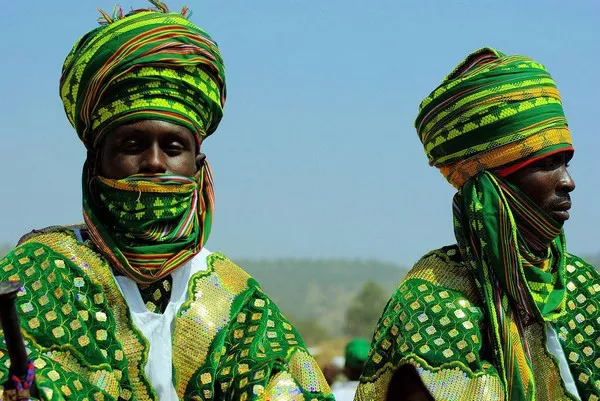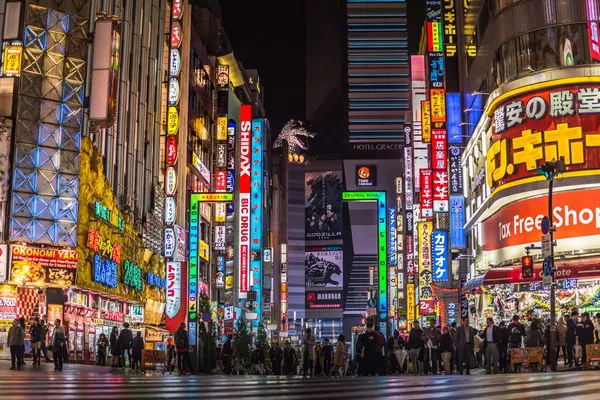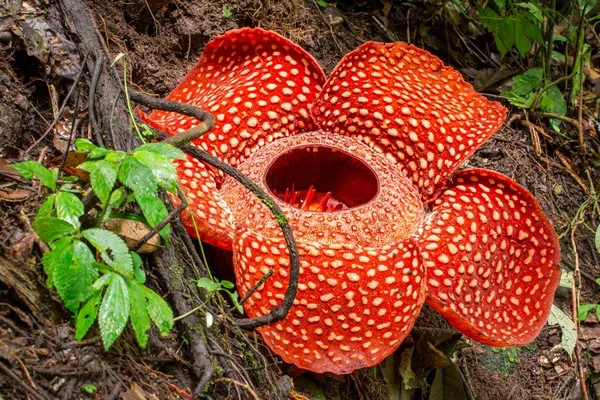Nigeria, often referred to as the “Giant of Africa,” is a nation rich in cultural diversity, boasting a tapestry woven from the threads of numerous ethnic groups. With over 200 distinct ethnicities, each with its own language, traditions, and history, Nigeria stands as a vibrant mosaic of identities. In this exploration, we delve into the 10 largest ethnic groups in Nigeria, unraveling the complexities and unique characteristics that define their cultural landscapes.
10 Largest Ethnic Groups in Nigeria
1. Hausa-Fulani:
At the helm of Nigeria’s largest ethnic group is the Hausa-Fulani, a composite entity formed by the amalgamation of the predominantly Muslim Hausa people and the Fulani pastoralists. Spread across the northern regions of Nigeria, this ethnic group plays a pivotal role in shaping the nation’s cultural, political, and economic landscape. The Hausa-Fulani language, a fusion of Hausa and Fula, serves as a unifying force among its members.
Known for their rich history, vibrant traditional attire, and Islamic heritage, the Hausa-Fulani people have significantly influenced Nigeria’s cultural tapestry. Cities like Kano and Sokoto in the northern part of the country serve as epicenters of Hausa-Fulani culture, where ancient traditions harmonize with modern life.
2. Yoruba:
In the southwestern part of Nigeria, the Yoruba people form one of the largest and most culturally significant ethnic groups. With a population exceeding 40 million, the Yoruba are renowned for their art, literature, and vibrant festivals. The Yoruba language, with its distinct tonal qualities, binds this ethnolinguistic group together.
Cities such as Lagos, Ibadan, and Abeokuta are cultural hubs where Yoruba traditions thrive. The Yoruba people have a rich religious heritage, with many practicing traditional Yoruba beliefs alongside Islam and Christianity. The Ooni of Ife and the Alaafin of Oyo, traditional monarchs, remain influential figures in Yoruba society.
3. Igbo:
Nestled in the southeastern part of Nigeria, the Igbo people constitute a significant ethnic group known for their industrious spirit, vibrant ceremonies, and deep sense of community. With a population exceeding 40 million, the Igbo are recognized for their contributions to commerce, education, and the arts. The Igbo language, Igbo, is widely spoken within the community.
Cities like Enugu and Onitsha serve as cultural hubs where Igbo traditions are celebrated. The Igbo people have a rich oral tradition, with storytelling playing a crucial role in passing down history and values. The Igbo-Ukwu archaeological site attests to the ancient civilization that thrived in Igbo land.
4. Edo:
In the southern region of Nigeria lies the Edo people, known for their rich history, artistic expressions, and the ancient Kingdom of Benin. With a population of over 8 million, the Edo people primarily inhabit Edo State. The Edo language, Bini, is spoken among the community.
The Kingdom of Benin, renowned for its intricate bronze sculptures and sophisticated artistry, flourished in the pre-colonial era. Today, the Edo people maintain a strong connection to their cultural heritage, with traditional ceremonies, festivals, and the Oba of Benin playing central roles in preserving their identity.
5. Ibibio:
Hailing from the southeastern part of Nigeria, the Ibibio people are an ethnolinguistic group with a population exceeding 6 million. Predominantly found in Akwa Ibom State, the Ibibio people have a unique cultural identity characterized by vibrant dance forms, colorful attire, and a rich folklore tradition. The Ibibio language, Ibibio, is spoken among the community.
The Ibibio people celebrate various festivals, including the Ekpe masquerade, which showcases their artistic expressions and spiritual beliefs. The Ibibio society places a strong emphasis on community values, with communal activities and rituals playing significant roles in their way of life.
6. Kanuri:
Situated in the northeastern part of Nigeria, the Kanuri people form a significant ethnic group with a population of over 4 million. Predominantly found in Borno State, the Kanuri people are known for their historic Kanem-Borno Empire, which played a crucial role in trans-Saharan trade. The Kanuri language, Kanuri, serves as a linguistic bond within the community.
While the Kanuri people have a rich history, their cultural practices have been influenced by Islam, with many embracing the religion. The Shehu of Borno remains a revered traditional leader among the Kanuri people, embodying a legacy of leadership and cultural preservation.
7. Tiv:
In the central part of Nigeria lies the Tiv ethnic group, known for its agricultural practices, strong communal ties, and a population exceeding 7 million. Primarily found in Benue State, the Tiv people have a rich oral tradition and a unique social organization. The Tiv language, Tiv, is widely spoken among the community.
The Tiv people are renowned for their traditional dances, ceremonies, and storytelling, which play integral roles in passing down cultural values. Agriculture, particularly yam cultivation, holds significant cultural and economic importance among the Tiv people.
8. Ijaw:
Hailing from the Niger Delta region, the Ijaw people are one of Nigeria’s largest ethnic groups, with a population exceeding 14 million. Predominantly found in Bayelsa, Delta, and Rivers States, the Ijaw people have a rich maritime culture, with fishing and trade playing vital roles in their way of life. The Ijaw language, Ijaw, is spoken among the community.
The Ijaw people are known for their colorful boat regattas, traditional festivals, and a strong sense of community identity. The traditional rulers, known as “Amayanabo” or “Obolo,” maintain cultural traditions and serve as custodians of the Ijaw heritage.
9. Nupe:
In the central-northern part of Nigeria, the Nupe people form a significant ethnic group with a population exceeding 6 million. Primarily found in Niger State, the Nupe people have a rich cultural heritage that blends aspects of Islam with traditional practices. The Nupe language, Nupe, serves as a linguistic link within the community.
The Nupe people are known for their annual cultural festival, the Nupe Day, where traditional music, dance, and displays of craftsmanship take center stage. The Etsu Nupe, the traditional ruler, plays a crucial role in preserving the cultural identity of the Nupe people.
10. Gwari:
Situated in the north-central region of Nigeria, the Gwari people form a distinct ethnic group with a population exceeding 4 million. Predominantly found in Niger State, the Gwari people have a unique cultural identity shaped by their historical interactions with neighboring groups. The Gwari language, Gwari, is spoken among the community.
The Gwari people are known for their traditional dances, vibrant attire, and a strong emphasis on communal values. Agriculture and trade play essential roles in the economic activities of the Gwari people, contributing to the sustenance of their communities.
See Also:THE WORLD’S 3 LARGEST LANDLOCKED COUNTRIES
Conclusion:
Nigeria’s cultural landscape is a rich mosaic, woven from the threads of diverse ethnic groups, each contributing to the nation’s vibrant identity. The 10 largest ethnic groups highlighted in this exploration showcase the depth and complexity of Nigeria’s cultural tapestry. From the Hausa-Fulani in the north to the Gwari in the central-north, each ethnic group brings its unique traditions, languages, and history, contributing to the overall diversity that defines Nigeria as a nation. As Nigeria continues to evolve, the preservation and celebration of these diverse cultural identities remain integral to the nation’s unity and collective heritage.
You Might Be Interested In:



























